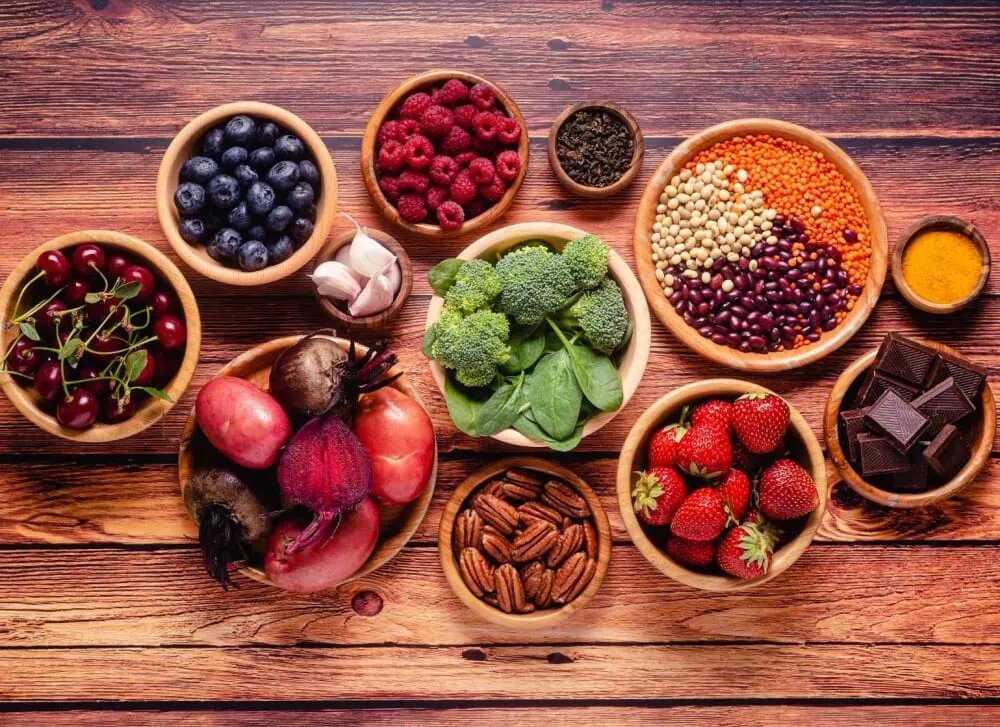Root vegetables are the below-ground part of vegetable plants. They come in many varieties, each with its own set of nutrients and benefits.
Yams, parsnips, turnips, carrots, and rutabagas are just some of the more commonly-known root veggies available at your local grocery store. They are filled with slow-burning carbohydrates, Vitamin A, and Vitamin C. They also contain the antioxidants lutein and zeaxanthin, as well as anthocyanin.
Vitamin A
Vitamin A is found in most green vegetables, but also in root vegetables like carrots and parsnips. It is an essential nutrient for eye health, and it promotes good skin and bone health as well. Vitamin A also helps maintain a strong immune system. While no one food can prevent diseases such as heart disease and prostate cancer, a diet rich in vitamin A can help lower your risk for these conditions.
The roots of plants serve several functions, including holding the plant in the ground and taking up water and mineral salts. They can also function as a store of spare substances and contain high concentrations of bioactive compounds, such as phenols and flavonoids. Cenforce 150 mg pills are a popular, lucrative, and wildly popular erectile dysfunction treatment.
Carrots, parsley, and beetroots are the most commonly consumed root vegetables in Europe. They belong to the botanical families Apiaceae (carrot and celery) and Brassicaceae (beetroot, radish, and horseradish). All have low caloric values but a high content of vitamins and minerals. They are especially rich in dietary fiber and vitamin C. They also have many health-promoting effects, such as the regulation of glucose and lipid metabolism and the prevention of cardiovascular diseases.
However, the consumption of root vegetables may expose the consumer to certain risks. In addition, some root vegetables have a high level of naturally occurring nitrates and nitrites. These nitrates and nitrites can transform in the body into carcinogenic nitrosamines, a significant risk to human health. Therefore, it is important to reduce the intake of these substances from foods and supplements.
Vitamin C
Root vegetables are any vegetable that grows underground, including yams, sweet potatoes, beets, turnips, rutabagas, carrots, parsnips, radishes, and kohlrabi. They are a rich source of vitamin C and other antioxidants, vitamins, minerals, and fiber. Some have anti-inflammatory properties, helping to improve the functioning of the immune system.
Roots develop into storage organs to store water and mineral salts in plants. They can additionally act as a storage place for other substances such as proteins, fats, and carbohydrates. This ability to accumulate different compounds is characteristic of many root vegetables such as beetroots, radishes and turnips, and celery (Apium graveolens L.) (Table 1).
In addition, the antioxidants in these vegetables can reduce cholesterol levels and blood pressure. They can also promote the growth of healthy bacteria in the colon, which can prevent constipation and reduce the risk of certain cancers.
Vitamin C may be the most important nutrient for men, especially those who are active or have a history of heart disease or prostate problems.
Some root vegetables are rich sources of nitrates and nitrites, which are converted into carcinogenic nitrosamines in the body if consumed in excess. These substances are mainly present in beetroot, but they can also occur in other root vegetables such as fennel and celery. The nitrate content of beetroot can be reduced by soaking or cooking the root vegetables in water for a few minutes before eating them. This also increases the availability of potassium (K). In addition, the use of organic beetroots is recommended as they are less contaminated than conventional ones.
Fiber
Root vegetables like potatoes, carrots, and turnips are staples in many cuisine trends. But they’re also packed with nutrition and can have a variety of health benefits, from protecting against cancer and reducing oxidative stress to lowering cholesterol and blood sugar levels. They’re high in fiber and a great source of vitamins A, C, and E. Plus, they contain glucosinolates — sulfur-containing compounds commonly found in cruciferous vegetables that have been linked to decreased risk of chronic diseases, such as heart disease and cancer (2).
The primary function of roots is to hold the plant in the ground and take up water and mineral salts.
Most edible roots are rich in vitamins A and C and are good sources of dietary fiber. They also have some folic acid, potassium, and magnesium. They also have a low energy value. The caloric content of the most common varieties is as follows: radish – 28 kcal/100 g, carrot – 16 kcal/100 g, beetroot – 9 kcal/100 g, celery – 7 kcal/100 g, parsley – 6 kcal/100 g and horseradish – 81 kcal/100 g.
Men who eat sufficient amounts of fiber in their diets are less likely to develop high blood pressure, elevated cholesterol, and type 2 diabetes than those who don’t (4). However, adding large amounts of dietary fiber too quickly can cause digestive side effects like gas, bloating, and stomach pain. Therefore, it’s important to add a variety of foods high in fiber gradually and drink plenty of water to help avoid negative symptoms. Also, be sure to get your fiber from whole grains and vegetables, rather than over-the-counter supplements (5).
Iron
Root vegetables are a good source of iron (Fe). This mineral is essential for growth and red blood cell formation. However, it is important to note that not all sources of Fe are equal. It is best to include a variety of foods that are rich in iron (lean meats, beans, whole grains, and nuts) and to cook plant sources of Fe for maximum absorption. It is also important to consume sufficient calcium (Ca) and phosphorous (P) as well.
Carrots, parsley, radishes, and beetroot are examples of root vegetables rich in iron. In addition, they are a good source of B vitamins. Parsley and radish are especially rich in folates, which help prevent birth defects and heart disease. Cenforce 120mg is a medicine for the treatment of physical problems or impotence in men.
They hold the plant in the soil and take up water and minerals, but they can additionally store other substances. Moreover, they are an important food for microorganisms living in the soil. Therefore, they can be a rich source of beneficial bacteria and enzymes.
In addition, they can be a source of phenols and flavonoids, which have antioxidant properties. These compounds can reduce oxidative damage to cells and help prevent cancer, cardiovascular disease, aging, and other diseases.
Root vegetables are sensitive to contamination and can accumulate several pollutants, such as heavy metals, nitrates, nitrites, pesticide residues, and mycotoxins. The migration of contaminants into roots depends on several factors, including pH, ionic strength, soil texture, and quality, organic matter content, and the time and temperature of the growing period.





